Humans
Sign up for our newsletter
We summarize the week's scientific breakthroughs every Thursday.
-
 Health & Medicine
Health & MedicineLaws to protect athletes’ brains do reduce concussions — eventually
Recurrent concussions among high school athletes went down about 2½ years after traumatic brain injury laws were on the books, a new study finds.
-
 Life
LifeThe next wave of bird flu could be worse than ever
Deadly bird flu can pass between ferrets through the air.
-
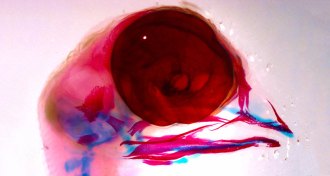 Health & Medicine
Health & MedicineAnimal study reveals how a fever early in pregnancy can cause birth defects
Using chicken embryos, study shows that heat itself, not an infectious agent, is the driving factor behind certain heart and facial birth defects.
-
 Health & Medicine
Health & MedicineMoms tweak the timbre of their voice when talking to their babies
Mothers shift the timbre, or quality, of their voice when talking to their babies, a change that happens in many different languages.
-
 Tech
TechThis stretchy implant could help kids avoid repeated open-heart surgeries
A new type of surgical implant grows along with its recipient.
-
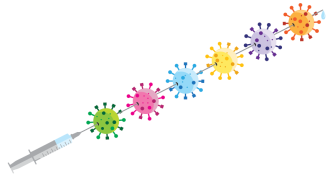 Health & Medicine
Health & MedicineA universal flu shot may be nearing reality
Scientists are developing a universal vaccine against flu, making annual shots a thing of the past.
By Laura Beil -
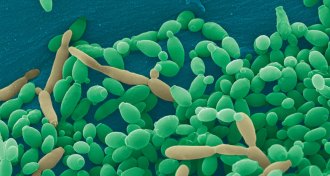 Life
LifeGut fungi might be linked to obesity and inflammatory bowel disorders
Fungi are overlooked contributors to health and disease.
-
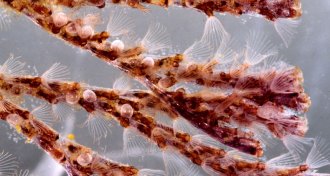 Chemistry
ChemistryA potential drug found in a sea creature can now be made efficiently in the lab
Cooking bryostatin 1 up in a lab lets researchers explore its potential as a drug.
-
 Health & Medicine
Health & MedicineIn many places around the world, obesity in kids is on the rise
The last 40 years saw a big leap in obesity among children, totaling an estimated 124 million boys and girls in 2016.
-
 Genetics
GeneticsWe’re more Neandertal than we thought
Neandertals contributed more to human traits than previously thought.
-
 Science & Society
Science & SocietyEconomics Nobel nudges behavioral economist into the limelight
Behavioral economist Richard Thaler started influential investigations of behavioral economics, which earned him the 2017 Nobel Memorial Prize in Economic Sciences.
By Bruce Bower -
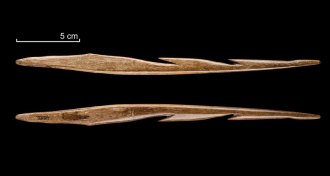 Archaeology
ArchaeologyEurope’s Stone Age fishers used beeswax to make a point
Late Stone Age Europeans made spears with beeswax adhesive.
By Bruce Bower